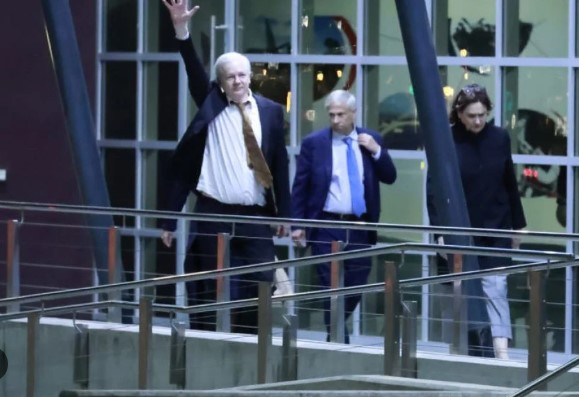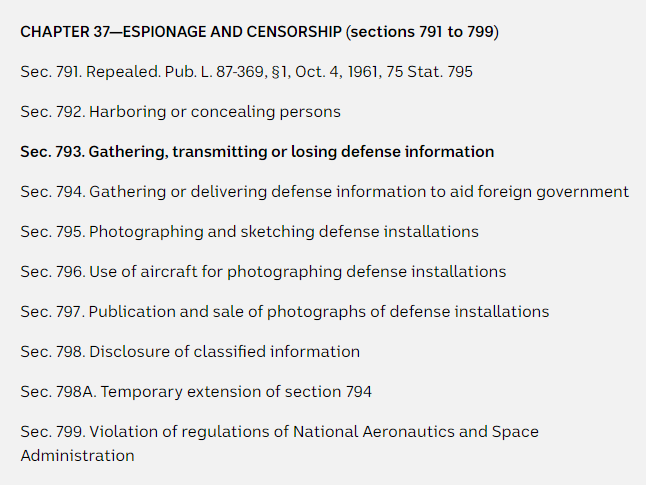Key Highlights:
- Julian Assange admitted guilt on Wednesday, June 26, for obtaining and publishing US military secretsmarking the end of a lengthy legal saga
- Assange gained global prominence in 2010 after releasing a series of leaks provided by Chelsea Manning, a former US Army
- The judge sentenced the 52-year-old to 5 years in prison, but he avoided serving additional time as he had recently completed a 5-year sentence in London
In the end, it was a blend of diplomacy, political maneuvering, and legal negotiations that enabled Julian Assange to depart from London’s Stansted airport aboard a private jet, destined for Australia and newfound freedom. The agreement securing his release, following 7 years of self-imposed seclusion and 5 years of enforced detention had been in the works for months, yet remained uncertain until the final moments.
Julian Assange has been released following a US federal judge’s decision to sentence him based on time already served in prison. The founder of WikiLeaks, Assange, admitted guilt on Wednesday, June 26, for obtaining and publishing US military secrets, marking the end of a lengthy legal saga that spanned continents, politics, and health issues.
Assange showed a slight smile when US District Judge Ramona Manglona declared him a “free man.” He entered his plea in a US district court located in Saipan, the capital of the Northern Mariana Islands. This US territory in the Pacific, closer to Assange’s native Australia, accommodated his wish to avoid entering the continental United States.
Under the agreement, the controversial internet publisher admitted to one felony charge and can now return to Australia without serving additional time in US prison.

What’s the deal?
The Crown Prosecution Service (CPS) has acknowledged its awareness of a potential plea deal concerning Julian Assange since March. They have actively assisted the United States in navigating the procedural requirements for Assange’s release and his appearance before a US federal judge, accommodating preferences from both Assange and the US government.
This shift follows years of impasse and is attributed to the election of a new Australian government in May 2022, prioritizing the return of its detained citizens. Prime Minister Anthony Albanese, while not endorsing all of Assange’s actions, advocated for his release through diplomatic channels.
Australian MPs traveled to Washington in September 2023, lobbying the US Congress directly. During a state visit to the White House in October, Prime Minister Albanese personally raised the issue with President Joe Biden. In February, Australian MPs overwhelmingly supported calls urging the US and UK to facilitate Assange’s return.
Key to this diplomatic effort were figures like US Ambassador Caroline Kennedy and Australian High Commissioner Stephen Smith. Legal advisor Greg Barns emphasized the role of political maneuvering, noting the Albanese government’s proactive stance as a departure in diplomatic efforts concerning Assange.
Publishing or Espionage?The Allegations Against Julian Assange

In 2006, Julian Assange founded WikiLeaks, an organization dedicated to publishing leaked materials. Assange gained global prominence in 2010 after releasing a series of leaks provided by Chelsea Manning, a former US Army soldier. Among the leaks was a video showing a 2007 Apache helicopter attack by American forces in Baghdad that resulted in the deaths of 11 people, including two Reuters journalists.
The US government initiated a criminal investigation, and Manning was ultimately convicted and jailed for the leaks, although her sentence was later commuted. In November 2010, WikiLeaks released over 250,000 US diplomatic cables.
In 2016, Assange made headlines again when WikiLeaks published emails from Democratic Party operatives in the lead-up to the US presidential election. US prosecutors alleged that the emails were stolen by Russian intelligence as part of an operation to interfere in the election in favor of Donald Trump.
How Assange’s Asylum Turned to Arrest?
In 2010, an arrest warrant for Julian Assange was issued in Sweden for two separate sexual assault allegations. After a UK court ruled that he could be extradited to Sweden, Assange entered the Ecuadorian embassy in London, where he was granted political asylum. It was reported that Assange feared extradition to Sweden might lead to further extradition to the United States.
Assange remained in the embassy for nearly seven years, during which time his relationship with the Ecuadorian government deteriorated. In 2019, Ecuador’s foreign minister accused Assange of rude behavior, including riding a skateboard, playing football inside the embassy, and mistreating and threatening embassy staff.
Although Swedish authorities dropped their charges against Assange in 2017, a UK arrest warrant for skipping bail persisted.Ecuador withdrew his asylum and allowed UK police to enter the embassy to arrest him in 2019.
After leaving the embassy, Assange was arrested on behalf of the United States, which had requested his extradition. The US charged him with 18 offenses, accusing him of encouraging and aiding Chelsea Manning in stealing military files. If convicted, Assange faced a sentence of up to 175 years in prison.
The Final Judgement
The judge sentenced the 52-year-old to 5 years in prison, but he avoided serving additional time as he had recently completed a 5-year sentence in London, UK. This agreement ensures he evades a US Espionage Act indictment, which could have led to a lengthy prison term, allowing both parties to claim a measure of satisfaction.
The Justice Department had to address a defendant who had already served significant jail time and faced a slow extradition process that might have prevented him from ever reaching a jury.
Assange expressed reluctant acceptance of the resolution, acknowledging in court that, despite his belief that the Espionage Act conflicted with the First Amendment, he understood the consequences of soliciting classified information for publication.
Finally, Assange has been hailed by supporters as a champion of transparency, while critics argue that his actions endangered lives and exceeded the responsibilities of traditional journalism. After the morning court hearing on June 26, Assange left Saipan by plane around midday local time, heading to Australia to reunite with his family.


